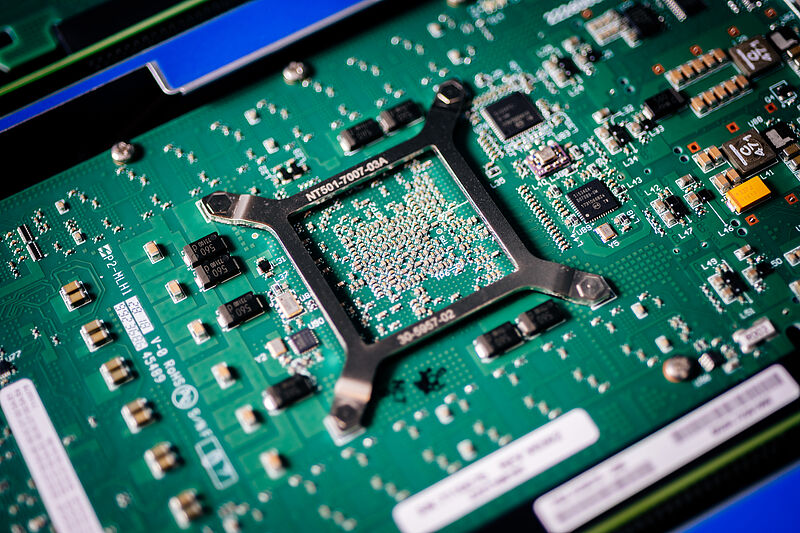In 2018, the German Research Foundation (DFG) established a large-scale Priority Program (SPP) coordinated by the University of Paderborn with "Integrated Electron-Photonic Systems for Ultrawideband Signal Processing". The goals are the research of electronic-photonic circuits, the development of corresponding algorithms and thus also the shift of the research focus of integrated photonics and device physics towards a circuit and system perspective. Now the program is entering its second phase, with the DFG announcing an extension for another three years until 2024. Specifically, this means that eleven project teams will begin their work. The SPP, headed by Prof. Dr.-Ing. Christoph Scheytt of the Heinz Nixdorf Institute at the University of Paderborn, has a total budget of around twelve million euros and a total duration of six years.
"Optical or electronic signal processing and nanophotonic integration technology offer numerous advantages. Photons, which form the basis for optical technologies, are small particles of light that make up electromagnetic radiation. In the priority program, 17 research groups from all over Germany are currently investigating new systems based on silicon photonics - a key technology of the 21st century," Scheytt explains. Silicon photonics enables the combination of nanophotonic circuits such as optical waveguides, filters or switches with integrated electronic circuits such as processors. The combination of complex electronics and miniaturized photonics on one chip thereby brings about completely new methods for signal processing and communication. It also offers advantages in terms of sustainability: Integrated electronic-photonic circuits are smaller and more energy-efficient. Therefore, the use of ever smaller components means cost and resource savings.
"Purely electronic signal processing works on the basis of transistors, whose speed and performance could be continuously improved in the past, but now cannot be increased for physical reasons. The speed of microchips has reached its limits," explains Scheytt. According to the scientist, optical signal processing already allows much higher signal speeds, which means, for example, higher radio frequencies and data rates. The overall goal of the SPP is therefore to research new circuits, systems and algorithms for electronic-photonic signal processing. Says Scheytt, "By developing highly integrated chips in advanced semiconductor technologies, we also want to show that much faster and more energy-efficient systems are feasible." He added that significantly higher performance combined with lower energy consumption could reduce the impact of information and communications technology on the environment and climate in the future. Scheytt: "In addition, the circuits also enable hardware solutions for completely new applications, e.g. in medical technology, for autonomous vehicles or the Internet of Things."

